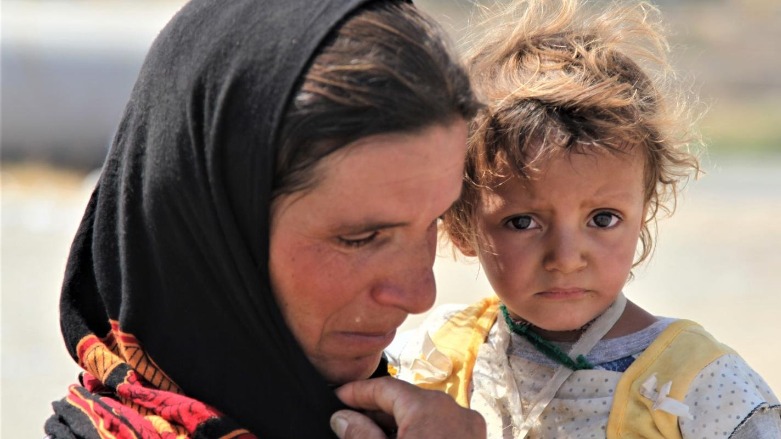Kurdistan PM addresses crimes against Yezidis on day honoring victims of genocide

ERBIL (Kurdistan 24) – On a day marking genocides around the world, Kurdistan Region Prime Minister Masrour Barzani spoke about the Yezidi (Ezidi) religious minority and brutal actions by ISIS beginning in 2014 against them that is increasingly being recognized worldwide as genocide.
“Far too many families in Kurdistan and Iraq have been touched by the trauma of genocide,” he wrote in a statement on the occasion of International Day of Commemoration and Dignity of the Victims of the Crime of Genocide and of the Prevention of this Crime.
“Against that backdrop today, the remains of 41 victims of the Yazidi genocide were buried in Kocho.”
Read More: At Yezidi burial ceremony, KRG pledges ongoing support, urges Sinjar Agreement implementation
In the presence of officials from the federal and regional governments, Yezidi clerics, families of the victims, and local residents, KRG Coordinator for International Advocacy Dindar Zebari spoke at the event, reading a letter on behalf of Prime Minister Barzani that called the attack on Sinjar “of one of the most appalling acts in history.”
In his remarks on Thursday, Barzani continued, saying, “This is a moment to look inwards, to reaffirm our support for the victims, and their right to compensation.”
“For the Yazidi community in particular, we must help rebuild Sinjar, and remain steadfast in our collective commitment to hold ISIS terrorists accountable,” Barzani
Far too many families in Kurdistan and Iraq have been touched by the trauma of genocide. Against that backdrop today, the remains of 41 victims of the Yazidi genocide were buried in Kocho. #GenocidePreventionDay pic.twitter.com/bHjrgmBdFD
— Masrour Barzani (@masrour_barzani) December 9, 2021
The emergence of ISIS led to the displacement of hundreds of thousands of Yezidis, who the extremist group considers heretics. Most of them fled to the Kurdistan Region, while others resettled in neighboring countries in the region or Western states.
Others were not as lucky and remained stranded in the war zone, where they experienced atrocities and mass executions at the hands of ISIS for years. Militants subjected women and girls to sexual slavery, kidnapped children, forced religious conversions, executed scores of men, and abused, sold, and trafficked women across areas they controlled in Iraq and Syria.
Before the 2014 attack, there were roughly 550,000 Yezidis in the Kurdistan Region and Iraq. As the terrorist group took over large swaths of territory in Nineveh, 360,000 Ezidis escaped and found refuge elsewhere, according to the Kurdistan Region’s Yezidi Rescue Office.
December 9, 2021 marks the International Day of Commemoration and Dignity of the Victims of the Crime of Genocide and of the Prevention of this Crime, as well as the 73rd anniversary of the 1948 Convention on the Prevention and Punishment of the Crime of Genocide (the “Genocide Convention”), the first human rights treaty adopted by the UN General Assembly.